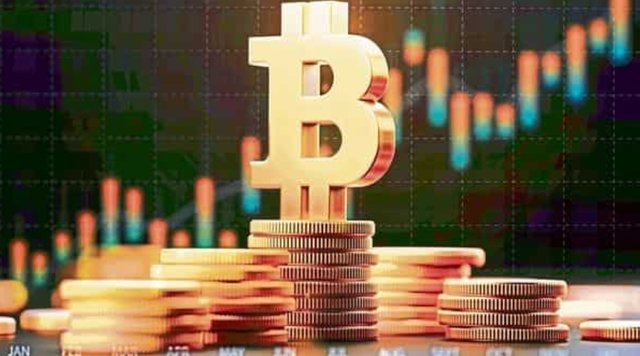
The cryptocurrency market means different things to different people. To many, it represents an object of naked speculation, which consumes almost all the media coverage about the space. For these people, Wednesday was a bad day, with the Bloomberg Galaxy Crypto Index plunging 19.2% in its worst slide in more than a year.
But to others, the crypto space is more than speculative instruments. It is the construction of a new financial system. For them, Wednesday was a huge win that might go down as one of the best days in crypto history. Under extreme stress, the system worked as designed. Yes, problems were uncovered, such as high fees to trade at the most volatile moments. But this is a known problem because the crypto platforms are running at 100% capacity. Solutions to add more capacity and efficiency have been in the works for months and should be operational by year-end.
To understand why I believe Wednesday was a big victory for crypto, separate the space into its two main categories: centralized and decentralized finance.
Centralized is the most familiar. These are the regulated exchanges such as BlockFi Inc., Coinbase Global Inc. and Binance. They run traditional order books with bids and offers much like the New York Stock Exchange. And much like Robinhood Markets Inc. and other traditional brokers, when markets get hectic, they are saddled with delays, system outages and frustrating customer experiences. These events lead many to to conclude that the crypto space is not ready for prime time.
But the decentralized protocols, which many claim are the future of finance, worked as designed and never went down. While customers grumbled about market losses, they were not complaining that these systems failed them at a critical time.
Recognizing that most are not familiar with decentralized finance, or DeFi, details are in order. DeFi does not use an order book like regulated exchanges. Instead, it has over 72,000 liquidity pools. Anyone can be a liquidity provider to these pools or even start one and earn interest (more coins) for their effort. Traders use these liquidity pools to trade cryptos. The entire protocol is run by computer code called an automatic market maker. No humans are involved in the trading on these exchanges.
The largest decentralized exchange is Uniswap. To access it, one must use an electronic wallet away from a regulated exchange and connect it to uniswap.org. This exchange allows customers to trade several thousand different cryptos. Uniswap founder Hayden Adams tweeted that Uniswap executed $6.3 billion of trades on Wednesday, well above Coinbase’s first-quarter average of $3.7 billion. Uniswap experienced no downtime and no slow service. No customer lost money because the exchange let them down.
One of the largest lending protocols is Compound. By connecting to Compound.finance, one can take out fully collateralized loans. Compound tweeted that its protocol “withstood the volatility flawlessly." A third protocol is Polygon Technology. This site allows developers to scale their decentralized apps to offer faster and more efficient services. It is critical to the DeFi universe. Its founder Sandeep Nailwal tweeted that “Defi stayed strong."
All these sites ran without incident even as some crypto prices crashed by 50%. The website bybt.com reported that 845,000 traders who bought cryptos on margin or leverage, using decentralized sites like Compound, AAVE or Maker, saw more than $9.11 billion of positions liquidated automatically using smart contracts. No decentralized protocol failed or needed a bailout. No regulators had to decide to close anything.
Everything on the blockchain is open and can be seen and analyzed in real-time, so these liquidations and trading can be watched as they unfold. Anyone can bid on buying the remaining assets of a liquidated account. Contrast that with the GameStop Corp. saga in January. What began as a modest short squeeze –- short interest positions are reported just twice a month -- ended up rocking financial markets for weeks. Regulators shut trading, which forced losses on unsuspecting customers and led to calls of cronyism and Congressional investigations from many of the same people who warn that crypto is opaque and dangerous. Sounds like projection.